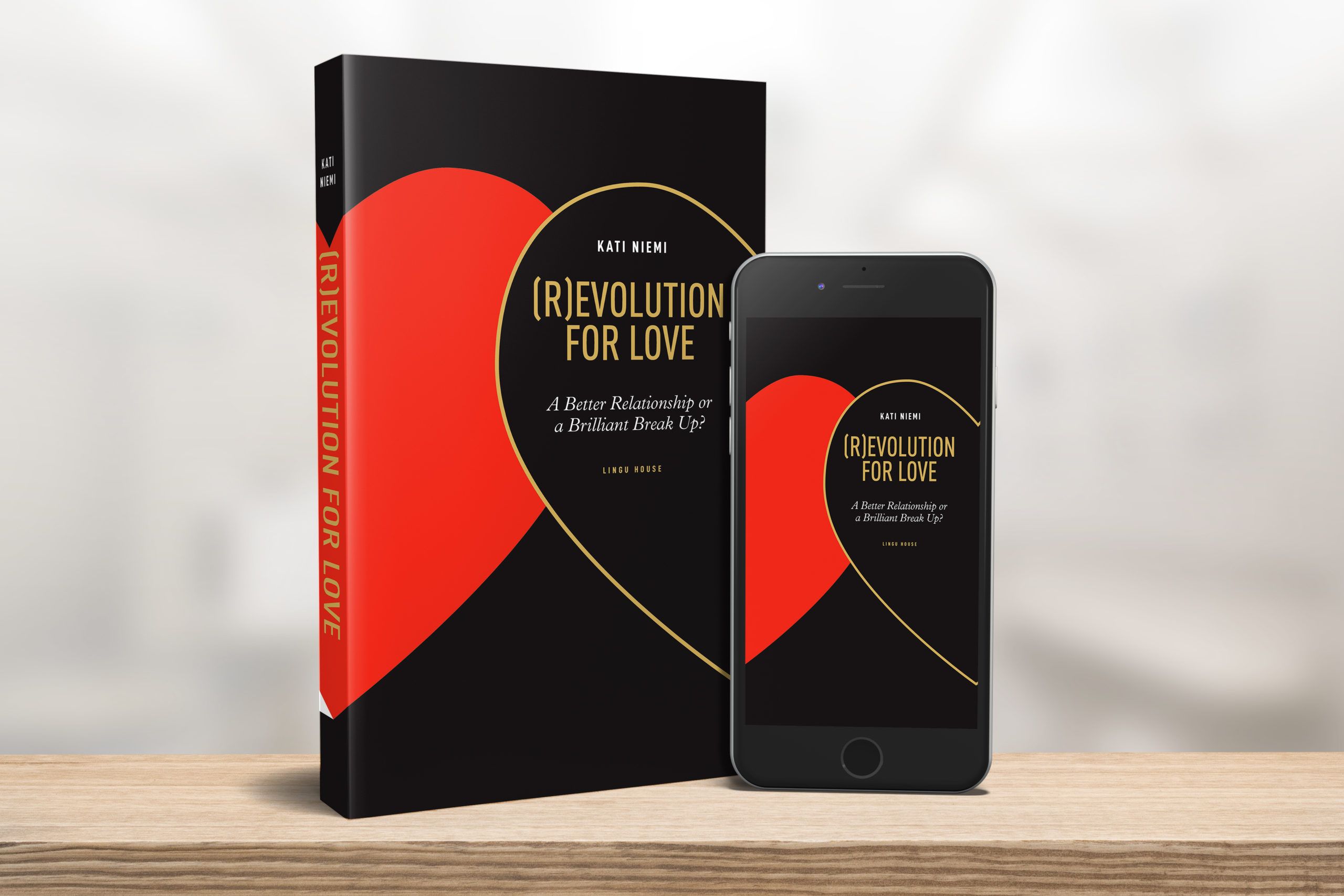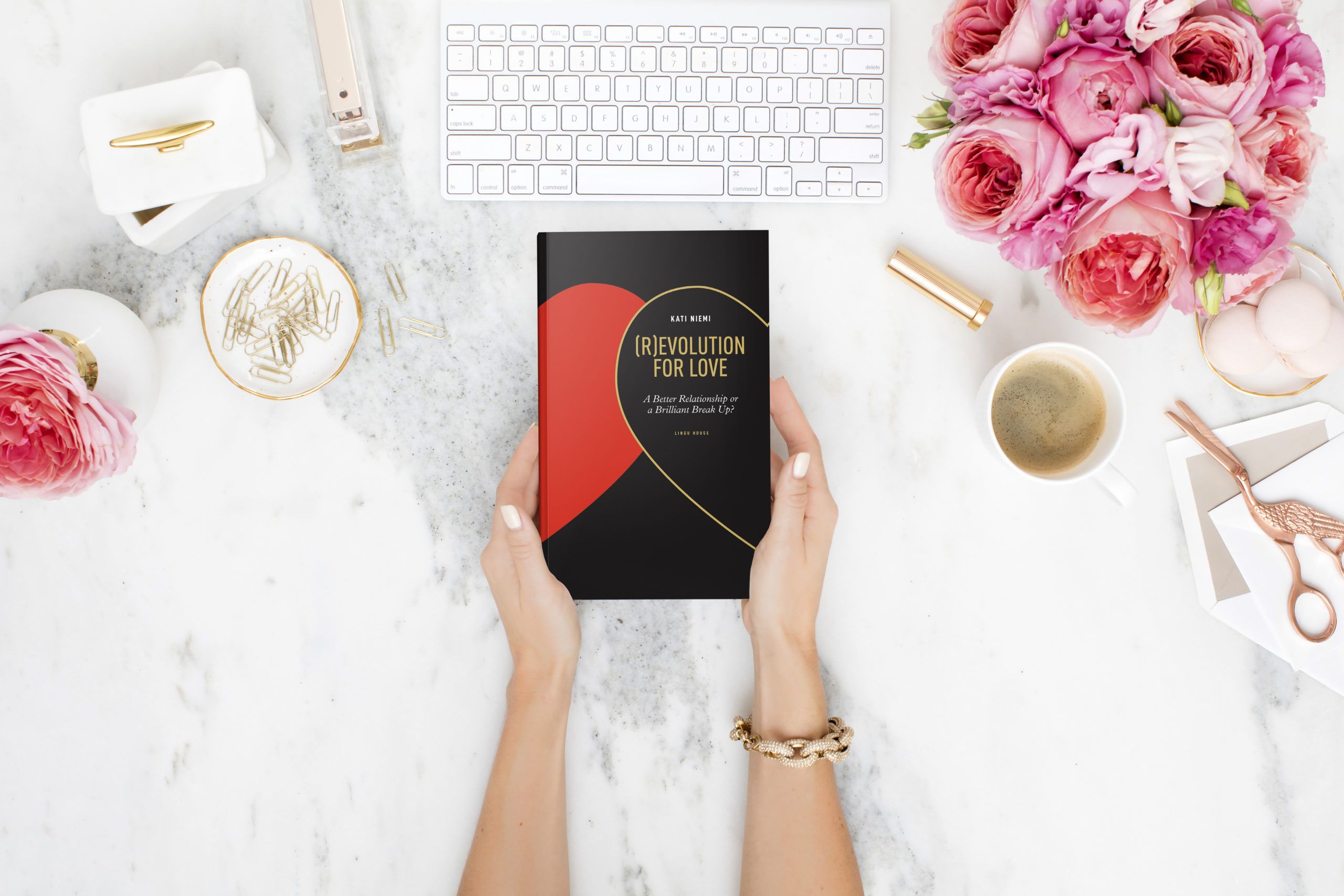What are the most common reasons for couple breaking up and what’s a ”good” or “sensible” reason to break up? Why do you think one reason is better than some other? Are there reasons you would or would not allow for yourself?
What do others think are the most common reasons for breaking up? Is there a reason that simply isn’t reason enough to end a relationship? If you are thinking about breaking up and are wondering what reason would be good enough for you to leave, you might be looking for some statistics to back up your decision.

FREE EBOOK ‘I love you but…’ – To Break Up or Not to Break Up?
Refocus your energy now to improve your love life! This FREE ebook ‘I love you but…’ will help you move towards a better relationship or
Of course, you make your own decisions, and what made your neighbours or your friends end their relationships does not affect your decisions in any way – right? And yet here you are, reading this article. You may be curious to know what the most “popular” reasons are for couples to call it a day. So let’s look at this theme in the best (R)evolution for Love style: gently but honestly and deeper than the surface.
What are good reasons to break up? And what are the obstacles that stop you from breaking up and “force” you to stay together?
“Reason enough” – what could that be?
As herd animals, we human beings model the behaviours of others from the early childhood onwards. We learn to walk by watching our carers walk, learn our first swearwords from our friends. People want to belong to a herd and be accepted even when we are no longer seen, heard and accepted by our partner. It is only normal that those wondering about breaking up are interested in other people’s relationships, happy or not. And we want to know why some couples choose to break up. Humans have a natural tendency to act like others so that we don’t act wrong. By ‘wrong’ we often mean ‘different’.
So what are the “most acceptable” reasons for breaking up – do they even exist? Many have faces new challenges during the coronavirus pandemic, lost their job and had financial difficulties. Are they good reasons, as our rational minds would have it? Or are they good excuses? In reality, chances are that that was the direction in which your relationship was headed long before the pandemic.
Several surveys and studies show that cheating is a common reason for couples breaking up.
However, does cheating inevitably or lack of sex inevitable lead to a break up? What about jealousy? And what does “growing apart” mean? Are these “reason enough” to leave?

Online Coaching
Happy to help you! Welcome to book your online coaching session with the certified Coach, NLP Trainer, and Clinical Hypnotherapist Kati Niemi! Please select your
Do you recognise what the ultimate reason is that your subconscious already knows to be a good enough reason for you, although on a conscious level you haven’t admitted it to yourself yet?
And have you, on the other hand, realised what the reasons are that are worth you staying and focusing on working on your relationship instead? YOU – we are not talking about the guy next door.
Even if you are not yet aware which reasons are good enough to break up, at least recognise the power of your subconscious.
This article offers a snap shot of what I wish I had realised long time ago. At least one divorce ago.
Maybe you are in the middle of it all right now.
I am a clinal hypnotherapist and NLP Trainer and I am interested in digging deeper than the surface. My goal with this article is to help you to take a closer look at your inner self.

THE FEAR OF BREAKING UP: “I’m too ashamed to leave.”
Some people stay in an unhappy relationship because of the shame and fear of breaking up. Break-up fear and and shame is common. Why?
Only by learning to know your subconscious and unconscious mind are you able to find that reason that you already know is the real deal-breaker for you. The reason that is good enough. That’s why you are reading this article, right?
I don’t think you ended up on this page by accident. So let me start by asking you:
Why do you want to know what other people’s “good” reasons or the most common reasons for breaking up are?
If you are anything like me ten years ago, my guess is that you have been busy googling for “why people divorce” or “should I get a divorce”. Reading about it can make your situation more palatable and support your decision-making. Whether it is a better relationship or a brilliant breakup.

Be aware of the impact of stress on your relationship
Stress symptoms and the impact of stress. If you have to manage you partner’s stress, yours is not a love but a care relationship.
Just guessing, of course. And guesswork is seldom correct. So quietly tell yourself what the right answer is: which part of you wants to know what other people’s tried and tested reasons are? What those (in theory) acceptable reasons, the most common reasons for breaking up are?
How many lists of other people’s reasons are you going to read or is it time to start listening to yourself?
And based on that, start a conversation with your partner?
I know. Easier said than done. Digging deep into your real feelings and thoughts is not as entertaining as playing with your smartphone and swiping left and right but…
What answers were you looking for or what were you hoping to read when you arrived at this article?

CHEATING: At what stage of evolution is your relationship?
How common is cheating in relationships? Is cheating the cause or the consequence of relationship problems and can it be stopped by love?
Perhaps this article is not going to give you what you are used to reading from other online sources or magazines. The truth is, those sources offer content that does not come from within you. But trust me. Once you finished reading this article, you will be once step closer to the reason your rational mind is still looking for but your subconscious already knows.
Questioning the foundations of a relationship and reasons for breaking up is natural.
According to some sociologists, the foundations of a marriage and a divorce can be divided into internal and external factors which are then weighed up against each other? The internal costs (time that being in a relationship takes) and benefits (sex) are balanced against external costs (financial aspects) and benefits (social acceptance).
Some sociologists say that a divorce is more likely if the external stress factors, such as the couple’s financial difficulties, increase the cost of staying in a relationship when weighed against the benefits. Or if one partner sees better alternatives for their current partner. Very simple arithmetic, in principle, right? Financial difficulties will certainly add stress, but do they have to ruin an otherwise good relationship? I will come back to this question again a little later.
Everyone who is in a relationship will also go through their own personal development path as individuals.
On top of this, if the internal and external aspects of the relationship are in constant state of flux, this balancing of costs and benefits is going to be an ongoing process. This is natural and nothing to worry about. Worrying is a much bigger risk to the wellbeing you, your partner and the continuity of your relationship than occasional thoughts about divorce.

Open relationship – just an option among many others?
What is an open relationship? What could we all learn from them? Do people in open relationships not experience jealousy?
I became so fascinated by debating what makes for a “good” or sufficiently “rational” reason to break up that I ended up writing a book about it, a 374-page solution-centred and practical guide. This popular book (R)evolution for Love includes nearly sixty interesting mental exercises to support your process of determining the future course of your relationship. The book also has colourful true stories of men and women in happy and unhappy relationships and those who are now happily or unhappily divorced or separated. Read some of the genuine reader feedback.
Why do you feel like the most common reasons why people break up are not good enough?
Rational decision-making about breaking up is confused by social factors through which we weigh up the benefits of our relationship against the costs. Social norms, such as fairness, faithfulness and loyalty are decided by the social reference group that an individual associates with.
Based on these norms, everyone thinking about breaking up tries to gauge the value of their relationship, the acceptability of leaving and the likelihood of finding a new partner. Sometimes we are aware of these norms and how they influence our decision-making. More often than not, however, we are unaware of how the normative climate around us affects the way we think.
In addition, men and women experience things differently, at least to some extent. We are targeted by gendered norms and expectations.

HOUSEWORK AND SEX: relationship problems or happiness?
Housework can be the biggest reason for couples to fight or even to break up. It could just as well be a source of wellbeing. Like sex.
If the top 5 lists of most common reasons for divorce, as read on the pages of magazines, don’t resonate with your own thoughts and reasonings, it doesn’t mean that you are wrong and they are right.
And if the reasons that others typically cite for the end of their relationship do resonate with you, it still does not mean that you have to follow suit.
The most common reasons for breaking up are interesting if you’re struggling with your own thoughts.
Of course we want to be certain that we are breaking up for the right reasons. We don’t want to make a big decision like divorce for the wrong reasons. However, don’t let the half-hearted, click-baiting reasons quoted in magazines affect your decision-making process. Your reasons are your reasons alone.
Deciding whether to break up is stressful. When we are under stress, we tend not to think things through and can make bad decisions. By focusing on stress management and looking after your wellbeing, you can rely more safely on your judgment even if your reasons to your decision seem to be completely unique and unheard of.

Is the most important thing in a relationship love? Sex? Intimacy?
What is the most important thing in a relationship? What can you expect from your partner? Does there have to be sex in a relationship?
Most common reasons for breaking up are nothing more than other people’s truths and therefore only theoretical in your case. They form a collective hallucination, so don’t let yourself be led astray by the mainstream.
Reasons and early signs for breaking up are stored in the big data of your unconscious.
Being aware of all the frustrations and complications of human relationships is all well and good. But what help is that knowledge when you are trying to balance out the ever-changing aspects of your relationship and your own volatile thoughts and reach the right decision about the future of your relationship?
It is easy pick other people’s brains for their thoughts about divorce or draw endless lists of pros and cons. I would argue that the best thing for you to do instead is to stop and think. Ask yourself: Do I have to be able to give watertight and logical reasons for my decision, rather than trust my persistent hunch or intuition?
“What if I just feel like I want to leave?”
If you are used to making your decisions based on rational reasoning only, naturally that will be your approach to deciding about the future of your relationship as well. In a long relationship, making a decision to break up is typically a matter of major emotional disentanglement. You will have gathered tons of “big data” over the years, and it is not all that easy to simplify, clarify, analyse and categorise everything.

IMPROVING YOUR RELATIONSHIP: Tips for a better relationship
10 tips for improving your relationship – Here’s how to make an already good relationship permanently better
A lifetime is not enough to name all the rational and logical reasons that influence your behaviour, so have mercy on yourself when you try and make a big decision such as divorce. To give yourself something more to work on than just your conscious and logical-rational decision, what other skills could you practice to reach a sustainable decision that you feel happy with?
Are you tired of doing the checks and balances on your relationship? Did you know that your rational thinking is like a pocket calculator compared to the supercomputer of your intuition? How about training your intuition? This would help that big data of your subconscious to process your decision. It has all the pros and cons safely stored to help you resolve whether to stay in your relationship (and this time genuinely try and improve it!) or to continue your life in your own, great company.
Are these the reasons you expect to see on the list of most common reasons for breaking up?
My book (R)evolution for Love has four sections, in the first of which (Wake Up!) I talk about the most common reasons for breaking up in the following chapters:
- Growing apart.
- Masters of verbal aggression and the silent treatment.
- Exhausted heroes.
- Happiness of sale.
- The nice guy and bad guy, the good girl and the harridan.
- Heartbreakers.
- Let’s talk about sex.
- The complainers and the compliers.

Long-Term Relationship Tips – How to Relight The Spark!
How to get the spark back in a long-term relationship? How to reignite the flames between you? Good tips to refuel the fire with the spouse!
Even if you don’t know yet what exactly these chapters are about, think about them for a second.
Let your powerful intuition lead you towards what for you is a good reason for breaking up.
Take a moment to look at each chapter title and ask yourself these questions:
- What thoughts do you have?
- Do any of them annoy you?
- Any of them make you feel sad?
- Do some of them not make sense to you?
- Does any of them seem more interesting or important than others?
- Which of them are you most likely to skip, deny it has anything to do with you, your partner and your relationship?
- What topics would you like to read true stories about to reflect on your own experiences, thoughts and feelings?
- Which of the chapters do you think would be most relevant to you?
- Is there a topic missing that would help you trust your intuition more?
The (R)evolution for Love – A better relationship or a brilliant break up? book shares real experiences of men and women who are living in or have left happy and unhappy relationships. Peer support is invaluable when we try and spot the key early signs of a looming break up before they actually manifest themselves.

How to improve your relationship in seconds?
If you think there are no quick and easy ways to improve your relationship, think again. Find out how to improve your relationship in seconds.
I chose not to discuss at length some of the widely accepted reasons for breaking up: partner’s excessive drinking or domestic violence. While these are extremely difficult issues and the situations are far from straightforward, people are unlikely to question your reasons to leave. It is much more difficult to justify a decision to leave a person who is a good person and seems to ticks a lot of boxes for a great partner. The more subtle reasons take more time to think through and, therefore, merited more space in my book. Ultimately, your reasons are good and acceptable reasons for you!
Unemployment and financial difficulties and break up: a reason, an obstacle or a consequence?
Many have cited financial difficulties as one major reason for breaking up. Money worries can cause arguments, that’s for sure. But isn’t it funny that those same financial worries can also keep a couple together – if nothing else, at least the partner brings some financial security to the table.
The fear of financial difficulties and the pain of splitting accumulated assets are both a major reason for people not to leave a relationship. This is true even of people who would have no difficulty living comfortably on a single income and even to increase their wealth over time.

How to Make Your Long Distance Relationship Work?
Having a problematic long distance relationship? How to make a long distance relationship work during lockdown?
My intention is not to belittle the importance of finances. It is a major stress factor in life. However, can it alone be the real reason people choose to leave or stay in a relationship? I would love to hear your thoughts about my gentle but sharp observations regarding the above chapter titles in the book (R)evolution for Love. How did they resonate with you?
Is cheating or lack of sex a good reason to break up?
The chapter Let’s talk about sex, as you probably guessed, touches upon those questions.
I have also talked about this theme from various perspective in the following blog articles:
- One night stand. A secret affair, another woman, a third wheel.
- CHEATING AND THE COLLECTED EXCUSES: What is a good reason to cheat?
- Cheating in a relationship? At what stage of development is your relationship?
Based on the countless surveys and polls out there on reasons for couples breaking up, cheating or lack of sex is usually up there near the top. But are they really just the superficial reasons that people prefer to reveal to nosy journalists or friends who want to know why your relationship ended? I should hope that a person experiencing the break up is able to look deeper below the surface. What was the root cause for there not being enough sex or for cheating? I wish that everyone who breaks up with their partner because of cheating or lack of sex also has the courage to face up to themselves.

(R)evolution for Love – The Book
* I have selected every editorial product for your benefit. Sometimes you may get some discounts and I may receive a share from purchases made
Finding the underlying cause for cheating or a sexless relationship is important so that you don’t end up repeating the same pattern in your next relationship, however unintentionally.
Fake relationship <> Fake divorce
Of course, we are at liberty to say whatever we want to anyone asking about our divorce or break up. And it is OK to evade tactless questions into your reasons, so of course it is understandable to resort to citing something “easy” and basic. If you had to say off the top of your head, why should a person break up from their partner, what would you say?
Cheating and lack of sex life are such easy, acceptable reasons. It is understandable that we want to use similar, easy reasons to support our own choices. But even if you became an expert in living in a fake relationship, at least after your break up, I urge you to start living authentically and stop telling yourself fibs about your life – particularly about the relationship that ended.
Good reasons for breaking up and rationalising cheating
Once you are past your break up, but preferably even earlier, do not make the mistake of convincing yourself that your break up was down to some commonplace acceptable reason if this was not the case. Learn about your true needs that went unfulfilled in the past relationship. And if the lack of sex were the one true reason you left your partner, do you think you could start thinking and be curious about yourself and explore why there was no sex? I’ve listed some questions to support your reflections.

How do attachment styles affect adult relationships?
What is an attachment style? How the attachment style you have developed affects your relationships as an adult.
- Why did my partner no longer want to have sex?
- How did we go about seeking help together for the lack of sex?
- If we did not seek help together, what part of me was it that did not want to seek help?
- How did I act in a situation that was unsatisfactory to me?
- What can I learn from those situations so that in the future I can experience the fulfilment of my needs and hopes, in terms of sex and otherwise?
I have listed some of the reasons, and especially the “collected excuses” that we sometimes use to justify cheating in my blogs under that theme. This blog also gives tips on how the cheater, the partner cheated on and the other man/woman can overcome a cheating situation.
Jealousy or narcissism of the partner is a common reason for breaking up – is that what happened to you?
Jealousy stems from fear, not love. Therefore, it makes sense that when love shows signs of dwindling, jealousy raises its head.
However, it is crucial to realise that the love we feel in a relationship was not created by that other person. We produce the emotions that we feel in ourselves, including love. Your partner may be friendly, kind and loving towards you, but they cannot make you feel loved. That feeling happens within you. You can also feel unloved. That feeling is also innate, it comes from within yourself. Read the more in-depth thoughts about what real love in or outside a relationship means.

Why do partners with incompatible sex drives blame each other?
Why doesn’t my partner want to have sex? What to do if my lack of interest in sex is a problem? How can I have a higher sex drive?
But how to avoid a break up because of unnecessary jealousy? Read these blog articles about jealousy and narcissism:
- ARE YOU THE JEALOUS TYPE?
- NARCISSISM IN A RELATIONSHIP: Is my partner a narcissist?
- PATHOLOGICAL JEALOUSY – How much jealousy is too much?
- A JEALOUS PARTNER: When your partner’s jealousy drives you mad!
The usual reason: “We simply grew apart.”
Different values are a common reason for couples to part ways. Everyone’s heard if before: “We simply grew apart.” But is it inevitable that partners who are different must also be incompatible and eventually break up? Perhaps their values were always a bit different and that did not stop them from becoming a couple.
People seldom change completely as they get older. However, when we are young, we don’t know ourselves and our values that well. As life goes on, maybe we have children and all kinds of changes take place, it is only normal – and desirable – that we learn to see more clearly what we want from life. It’s possible that we have always wanted the same things but have not been able to express this.

Great sex while single from Tinder and other dating apps!
The gallery of people on Tinder is as varied as people in general. Happily, every single person can find good sex from Tinder or elsewhere.
How can self-development and personal growth help improve your relationship and prevent a break up?
Change and growth as a person does not mean that you can’t communicate with each other like you used to. It also doesn’t cause break ups. Of course, if your communication breaks down as you end up in completely opposite camps it is likely that your relationship will also break down. But even then, it is not too late to turn the tables. At this point, if your will to stay together has worn off by decades of silence, don’t expect that feeling to reappear automatically.
If you embark on your next relationship with the same assumptions as you did on your earlier relationship, it is highly likely that you and your new partner will also “grow apart”. Meeting your new partner in your forties, will you expect them to be the same when they are sixty, or when they retire and all their routines change?
If you let yourself believe that your first relationship ended just because you “grew apart”, will you work on improving your communication skills in your new relationship so that your new relationship doesn’t end the same way?

FREE AUDIOBOOK: Audible, Google Play and other stores’ free trial
Audiobook lovers benefit from FREE trial periods of book stores. Enjoy (R)evolution for Love on Amazon Audible, Google Play & other stores
Small favours. Quiet sighs. Passing touches. Passionate kisses.
In how many different ways did your try and improve yourself today?
What other causes are there for break ups?
Some other reasons commonly cited are:
- Indifference or excessive control
- Weight gain or, alternatively, fanatic approach to health and diet
- Failure to share housework and also criticising the quality of housework
- Lack of interest in childcare or hysterical helicopter parenting
- Unkempt and scruffy looks or excessive interest in appearance
- Clinginess and excessively home-centred lifestyle or constant pursuit of outside interests and inability to relax at home.
What other reasons have you heard of? What else could you think of?
The world is full of things that annoy us. Not just your partner. Some are annoyed with themselves, how they are stuck in a rut and can’t seem to achieve what they want in life: professionally, in their hobbies, financially or in their relationships with their friends and family.
Before you and your partner’s reasons or “collected excuses” for break up become an actual statistic…
Before you start blaming your partner for your own problems and announce this as the reason for you breaking up, why not see a therapist or a coach to take a closer look at your inner self? A professional can provide a safe environment to explore and find the restrictive habits and beliefs that are really behind the trouble with you, your partner and your relationship.

How to improve your wellbeing through self-development?
Science has revealed: some adults are not mentally sufficiently developed. How to improve your wellbeing through self-development?
Would you believe me if I told you that by taking that plunge of self-discovery you will also find reasons to stay by your partner and the ways to improve your relationship into something just as deep and profound as you as an individual are capable of?
And even if your decision is eventually to break up, you will need those same skills in a future relationship, which hopefully is happier. So why not start coaching yourself today, whether it is for a life after your relationship or for life in your current relationship – with your current or your future partner, or even on your own.
I wish you strength on your journey – wherever it may take you and whomever you have by your side! Most importantly, stay by your own side. Be present as your authentic self.
To yourself, if no one else.

Motivating You to mindshifting in many ways,
Your Coach Kati Niemi
Clinical Hypnotherapist, NLP Trainer, M.Sc.
[email protected]

“FIVE STARS!” Book reviews: (R)evolution for Love (Amazon Books)
“Five Stars!” Editorial reviews and reader reviews of (R)evolution for Love – A Better Relationship or a Brilliant Break Up? Amazon books

FEEDBACK TO LOVE! Reader reviews (Book+Blog)
RELATIONSHIP GUIDE: BOOK REVIEWS – We are blown over by the feedback the (R)evolution for Love relationship blog and guide have received. WOW!

FREE AUDIOBOOK: Audible, Google Play and other stores’ free trial
Audiobook lovers benefit from FREE trial periods of book stores. Enjoy (R)evolution for Love on Amazon Audible, Google Play & other stores

FREE EBOOK ‘I love you but…’ – To Break Up or Not to Break Up?
Refocus your energy now to improve your love life! This FREE ebook ‘I love you but…’ will help you move towards a better relationship or

How to improve your wellbeing through self-development?
Science has revealed: some adults are not mentally sufficiently developed. How to improve your wellbeing through self-development?

Why does our conscious mind question the power of the unconscious mind?
Is the power of the unconscious mind fake news and is trying to harness it to achieve our full potential a waste of time? What do we mean by the unconscious mind?

INFIDELITY and the collected excuses: The good reasons for cheating
CHEATING: What is a good reason to cheat? What do the cheated partner, “the other woman/man” or the cheater choose to believe in?

What is an open relationship? Does it lead to breaking up?
What is an open relationship? Who are non-monogamous open relationships for? Is your partner suggesting consensual non-monogamy?

Narcissism in a Relationship: “How to Know if My Partner Is a Narcissist?”
What are the signs and causes of narcissism? Can you make a relationship with a narcissist work? Can you heal a narcissistic partner?

Aromatherapy for Libido & Romance – The Best Essential Oils for Love
Sense of smell influences our sexual desire and performance. Aromatherapy tips and the best essential oils for romance, libido, sex and love.

When positive thinking becomes toxic
What is too positive thinking like? Where should we focus the power of our mind and our willpower?

TO BREAK UP OR NOT TO BREAK UP? Should I stay or should I go?
How do you know if you should leave or not. How to make the decision to break up or to improve your relationship? To break up or not?


























